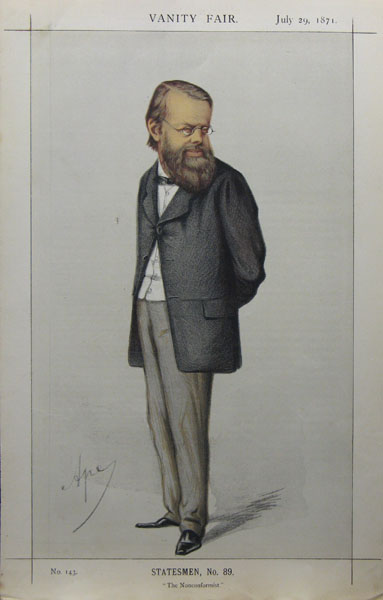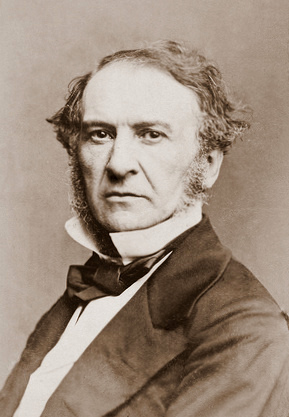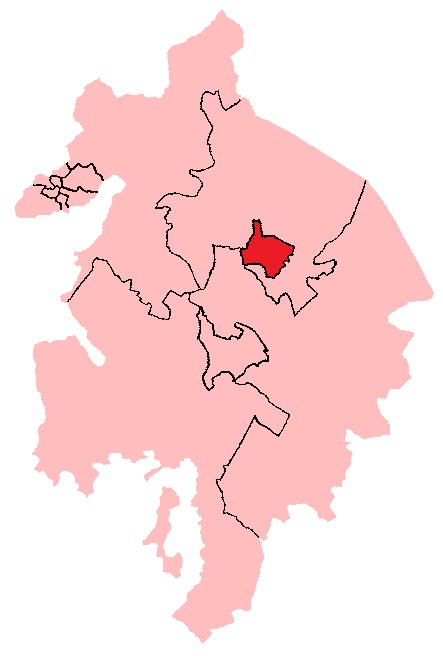|
Thomas Mason Jones
Thomas Mason Jones (1833–1873) was an Irish radical journalist and political activist. Jones was born in Ireland, and claimed to have been educated at Trinity College Dublin, although he does not appear in its records. He became known as a radical speaker, and moved to England in 1858, to work as a journalist. He became well known for his work with the ''National Reformer''. His reports on the Garibaldi Legion brought him to wide attention, and he began lecturing on the topic. In 1863, he visited the United States, and on his return to England, he also began lecturing on the American Civil War, and in opposition to slavery. Jones was a supporter of Chartism, and was one of the main founders of the Reform League, chairing its early meetings, and speaking on its behalf, for which he was nicknamed the "Eloquent Irishman". Jones stood as a Liberal Party candidate in Coventry at the 1865 United Kingdom general election. During his campaign, he described workers as a "rabble" ... [...More Info...] [...Related Items...] OR: [Wikipedia] [Google] [Baidu] |
Irish People
The Irish ( ga, Muintir na hÉireann or ''Na hÉireannaigh'') are an ethnic group and nation native to the island of Ireland, who share a common history and culture. There have been humans in Ireland for about 33,000 years, and it has been continually inhabited for more than 10,000 years (see Prehistoric Ireland). For most of Ireland's recorded history, the Irish have been primarily a Gaelic people (see Gaelic Ireland). From the 9th century, small numbers of Vikings settled in Ireland, becoming the Norse-Gaels. Anglo-Normans also conquered parts of Ireland in the 12th century, while England's 16th/17th century conquest and colonisation of Ireland brought many English and Lowland Scots to parts of the island, especially the north. Today, Ireland is made up of the Republic of Ireland (officially called Ireland) and Northern Ireland (a part of the United Kingdom). The people of Northern Ireland hold various national identities including British, Irish, Northern Irish or som ... [...More Info...] [...Related Items...] OR: [Wikipedia] [Google] [Baidu] |
1865 United Kingdom General Election
The 1865 United Kingdom general election saw the Liberals, led by Lord Palmerston, increase their large majority over the Earl of Derby's Conservatives to 80. The Whig Party changed its name to the Liberal Party between the previous election and this one. Palmerston died in October the same year and was succeeded by Lord John Russell as Prime Minister. Despite the Liberal majority, the party was divided by the issue of further parliamentary reform, and Russell resigned after being defeated in a vote in the House of Commons in 1866, leading to minority Conservative governments under Derby and then Benjamin Disraeli. This was the last United Kingdom general election until 2019 where a party increased its majority after having been returned to office at the previous election with a reduced majority. Corruption The 1865 general election was regarded by contemporaries as being a generally dull contest nationally, which exaggerated the degree of corruption within individual consti ... [...More Info...] [...Related Items...] OR: [Wikipedia] [Google] [Baidu] |
Chartists
Chartism was a working-class movement for political reform in the United Kingdom that erupted from 1838 to 1857 and was strongest in 1839, 1842 and 1848. It took its name from the People's Charter of 1838 and was a national protest movement, with particular strongholds of support in Northern England, the East Midlands, the Staffordshire Potteries, the Black Country, and the South Wales Valleys. The movement was fiercely opposed by government authorities who finally suppressed it. Support for the movement was at its highest when petitions signed by millions of working people were presented to the House of Commons. The strategy employed was to use the scale of support which these petitions and the accompanying mass meetings demonstrated to put pressure on politicians to concede manhood suffrage. Chartism thus relied on constitutional methods to secure its aims, though some became involved in insurrectionary activities, notably in South Wales and in Yorkshire. The People's Chart ... [...More Info...] [...Related Items...] OR: [Wikipedia] [Google] [Baidu] |
1873 Deaths
Events January–March * January 1 ** Japan adopts the Gregorian calendar. ** The California Penal Code goes into effect. * January 17 – American Indian Wars: Modoc War: First Battle of the Stronghold – Modoc Indians defeat the United States Army. * February 11 – The Spanish Cortes deposes King Amadeus I, and proclaims the First Spanish Republic. * February 12 ** Emilio Castelar, the former foreign minister, becomes prime minister of the new Spanish Republic. ** The Coinage Act of 1873 in the United States is signed into law by President Ulysses S. Grant; coming into effect on April 1, it ends bimetallism in the U.S., and places the country on the gold standard. * February 20 ** The University of California opens its first medical school in San Francisco. ** British naval officer John Moresby discovers the site of Port Moresby, and claims the land for Britain. * March 3 – Censorship: The United States Congress enacts the Comstock Law, making it ... [...More Info...] [...Related Items...] OR: [Wikipedia] [Google] [Baidu] |
1833 Births
Events January–March * January 3 – Reassertion of British sovereignty over the Falkland Islands in the South Atlantic. * February 6 – His Royal Highness Prince Otto Friedrich Ludwig of Bavaria assumes the title His Majesty Othon the First, by the Grace of God, King of Greece, Prince of Bavaria. * February 16 – The United States Supreme Court hands down its landmark decision of Barron v. Mayor and City Council of Baltimore. * March 4 – Andrew Jackson is sworn in for his second term as President of the United States. April–June * April 1 – General Antonio López de Santa Anna is elected President of Mexico by the legislatures of 16 of the 18 Mexican states. During his frequent absences from office to fight on the battlefield, Santa Anna turns the duties of government over to his vice president, Valentín Gómez Farías. * April 18 – Over 300 delegates from England, Scotland, Wales and Ireland travel to the office of the Prime Minister, the Earl Grey, to cal ... [...More Info...] [...Related Items...] OR: [Wikipedia] [Google] [Baidu] |
Liberation Society
The Liberation Society was an organisation in Victorian England that campaigned for disestablishment of the Church of England. It was founded in 1844 by Edward Miall as the British Anti-State Church Association and was renamed in 1853 as the Society for the Liberation of Religion from State Patronage and Control, from which the shortened common name of ''Liberation Society'' derived. Background Nonconformism – which included Baptists, Congregationalists, Unitarians, Wesleyans and other branches of Methodism – was a significant religious movement in mid-nineteenth century Britain. The UK census of 1851 reported that just under half the church-going population, which itself was around half of the total population, were Nonconformists. While no religious movement was able to grow its audience in proportion to the increase in population over the remainder of the century, it seems that the Nonconformists were more actively observant than their Church of England counterparts to ... [...More Info...] [...Related Items...] OR: [Wikipedia] [Google] [Baidu] |
Church Of Ireland
The Church of Ireland ( ga, Eaglais na hÉireann, ; sco, label= Ulster-Scots, Kirk o Airlann, ) is a Christian church in Ireland and an autonomous province of the Anglican Communion. It is organised on an all-Ireland basis and is the second largest Christian church on the island after the Roman Catholic Church. Like other Anglican churches, it has retained elements of pre-Reformation practice, notably its episcopal polity, while rejecting the primacy of the Pope. In theological and liturgical matters, it incorporates many principles of the Reformation, particularly those of the English Reformation, but self-identifies as being both Reformed and Catholic, in that it sees itself as the inheritor of a continuous tradition going back to the founding of Christianity in Ireland. As with other members of the global Anglican communion, individual parishes accommodate different approaches to the level of ritual and formality, variously referred to as High and Low Church. Overvie ... [...More Info...] [...Related Items...] OR: [Wikipedia] [Google] [Baidu] |
Boston (UK Parliament Constituency)
Boston was a parliamentary borough in Lincolnshire, which elected two Members of Parliament (MPs) to the House of Commons from 1547 until 1885, and then one member from 1885 until 1918, when the constituency was abolished. History Boston first elected Members of Parliament in 1352–1353, but after that the right lapsed and was not revived again until the reign of Edward VI. The borough consisted of most of the town of Boston, a port and market town on the River Witham which had overgrown its original boundaries as the river had been cleared of silt and its trade developed. In 1831, the population of the borough was 11,240, contained 2,631 houses. The right to vote belonged to the Mayor, aldermen, members of the common council and all resident freemen of the borough who paid scot and lot. This gave Boston a relatively substantial electorate for the period, 927 votes being cast in 1826 and 565 in 1831. The freedom was generally obtained either by birth (being the son of an exi ... [...More Info...] [...Related Items...] OR: [Wikipedia] [Google] [Baidu] |
1868 United Kingdom General Election
The 1868 United Kingdom general election was the first after passage of the Reform Act 1867, which enfranchised many male householders, thus greatly increasing the number of men who could vote in elections in the United Kingdom. It was the first election held in the United Kingdom in which more than a million votes were cast; nearly triple the number of votes were cast compared to the previous election of 1865. The result saw the Liberals, led by William Gladstone, again increase their majority over Benjamin Disraeli's Conservatives ( see 1865 election) to more than 100 seats. This was the last general election at which all the seats were taken by only the two leading parties, although the parties at the time were loose coalitions and party affiliation was not listed on registration papers. Results Voting summary Seats summary Regional results Great Britain =England= =Scotland= =Wales= Ireland Universities See also * List of MPs elected in the 18 ... [...More Info...] [...Related Items...] OR: [Wikipedia] [Google] [Baidu] |
Coventry (UK Parliament Constituency)
Coventry was a borough constituency which was represented in the House of Commons of England and its successors, the House of Commons of Great Britain and the House of Commons of the United Kingdom. Centred on the City of Coventry in Warwickshire, it returned two Members of Parliament (MPs) from 1295 until the Redistribution of Seats Act 1885, when its representation was reduced to one. The Coventry constituency was abolished for the 1945 general election, when it was split into two new constituencies: Coventry East and Coventry West. Elections were held using the bloc vote system when electing two MPs (until 1885), and then first-past-the-post to elect one MP thereafter. Boundaries From 1885 to 1918 the constituency consisted of the city of Coventry and the parish of Stoke.Debrett's House of Commons & Judicial Bench, 1886 From 1918 until the constituency disappeared in 1945, it consisted of the County Borough of Coventry. History In the eighteenth century Coventry w ... [...More Info...] [...Related Items...] OR: [Wikipedia] [Google] [Baidu] |
Radical (politics)
Radical politics denotes the intent to transform or replace the principles of a society or political system, often through social change, structural change, revolution or radical reform. The process of adopting radical views is termed radicalisation. The word derives from the Latin ("root") and Late Latin ("of or pertaining to the root, radical"). Historically, political use of the term referred exclusively to a form of progressive electoral reformism, now known as classical radicalism, that had developed in Europe during the 18th and 19th centuries. However, the denotation has changed since its 18th century coinage to comprehend the entire political spectrum, though retaining the connotation of "change at the root". History The ''Oxford English Dictionary'' traces usage of 'radical' in a political context to 1783. The ''Encyclopædia Britannica'' records the first political usage of 'radical' as ascribed to Charles James Fox, a British Whig Party parliamentarian who in ... [...More Info...] [...Related Items...] OR: [Wikipedia] [Google] [Baidu] |
Liberal Party (UK)
The Liberal Party was one of the two Major party, major List of political parties in the United Kingdom, political parties in the United Kingdom, along with the Conservative Party (UK), Conservative Party, in the 19th and early 20th centuries. Beginning as an alliance of Whigs (British political party), Whigs, free trade–supporting Peelites and reformist Radicals (UK), Radicals in the 1850s, by the end of the 19th century it had formed four governments under William Ewart Gladstone, William Gladstone. Despite being divided over the issue of Irish Home Rule Movement, Irish Home Rule, the party returned to government in 1905 and won a landslide victory in the 1906 United Kingdom general election, 1906 general election. Under Prime Minister of the United Kingdom, prime ministers Henry Campbell-Bannerman (1905–1908) and H. H. Asquith (1908–1916), the Liberal Party passed Liberal welfare reforms, reforms that created a basic welfare state. Although Asquith was the Leader of t ... [...More Info...] [...Related Items...] OR: [Wikipedia] [Google] [Baidu] |









.png)